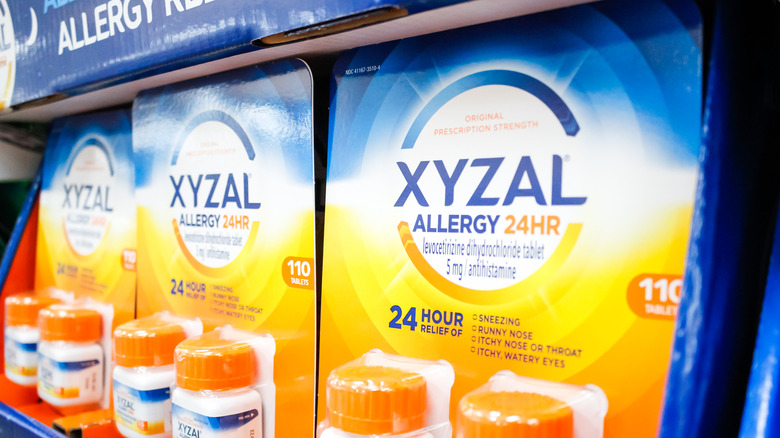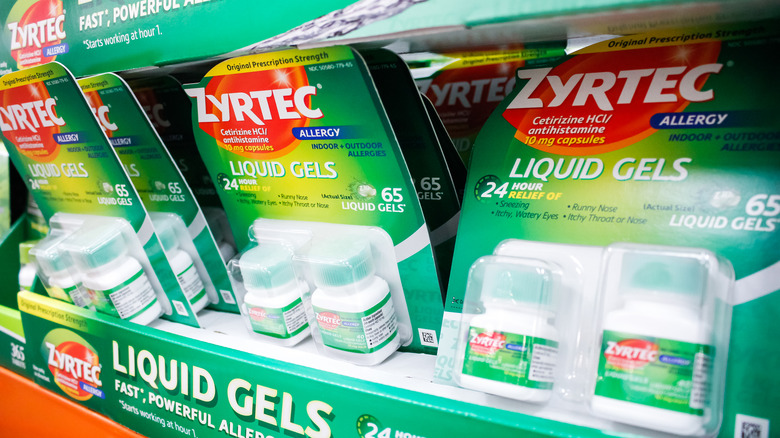Xyzal Vs. Zyrtec: Which Allergy Medication Is Better?
So many of us have been there — suffering from a runny nose, itchy eyes, and sneezing after being exposed to someone's pet, grass, dust mites or other allergens. Allergies affect more than 50 million Americans and are the sixth leading cause of chronic illness in the United States, according to the American College of Allergy, Asthma & Immunology. It's no wonder that so many people find themselves rushing to the pharmacy for both over-the-counter and prescription medications to help relieve symptoms as soon as a new season arrives. With so many choices available, you might find yourself wondering which option is best.
Fortunately, the FDA has approved two popular medications that might stand out: Xyzal and Zyrtec. Both antihistamines cause less drowsiness than antihistamines such as Benadryl, but they each also have unique differences you might want to consider before purchase. How do you decide between the two? Here are some facts to help you and your doctor make an educated decision.
Xyzal is believed to cause less drowsiness
Xyzal and Zyrtec are similar in many ways, but the biggest advantage Xyzal has is that it's a newer drug. Both Xyzal and Zyrtec are labeled as nonsedating antihistamines that treat nasal symptoms and uncomplicated skin reactions due to allergies, but both have the potential to cause drowsiness, according to Healthline. However, Xyzal is a third-generation drug, which means it is less likely to cause drowsiness than the second-generation Zyrtec.
If you experience nasal allergy symptoms year-round, Xyzal also might be a better choice for your symptoms. It is often recommended for patients with perennial allergic rhinitis — nasal symptoms most days of the year (per Singlecare). However, you should be aware that potential side effects of Xyzal include sleepiness, nosebleed, fever, sore throat, dry mouth, and cough, although more severe reactions might include swelling, rash and itching. It's also the more expensive choice, averaging between $50 and $75 for 30 tablets. However, generic Xyzal is often covered by most insurance plans.
Zyrtec is more affordable and often recommended for seasonal allergies
If you prefer a medication that has been available for a longer period — which often means it's less expensive — then Zyrtec might be the better option for you. Zyrtec is often prescribed for effectively managing seasonal allergic rhinitis — nasal symptoms, perhaps due to ragweed and pollen, during specific times of the year. However, it is also an effective treatment for patients who experience nasal symptoms year-round, reports Singlecare.
While Zyrtec averages between $18 and $33 for 30 tablets, it is generally not covered by insurance plans, even in generic form. According to Healthline, Zyrtec's most common and severe side effects include drowsiness, stomach pain, dry mouth, cough, diarrhea, and vomiting. Many studies have found Zyrtec to be more effective than Xyzal, but some studies have favored Xyzal. At the end of the day, the best way to decide between the two is to discuss them with your doctor.


